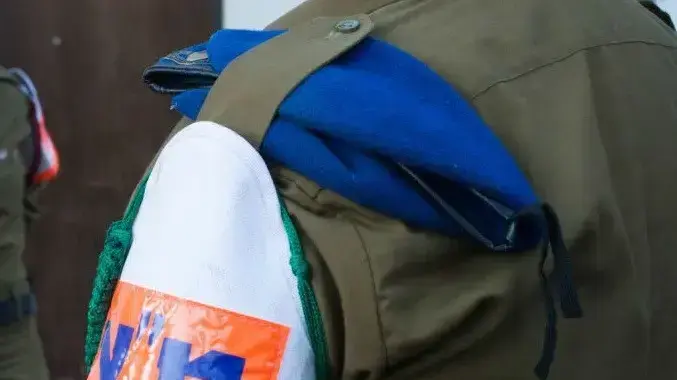Determined forehead: To deal properly with the IDF investigation
Criminal investigation into the IDF is not fundamentally different from that conducted by the Israeli police, but in many cases dealing with it can be much more stressful and confusing.
(Illustration by Niv Aharonson)
Soldier with military uniform, 2015 (Photo: Niv Aharonson)
Military Police - The Investigating Military Police is the only officer in charge of police investigations carried out at IDF bases and / or by duty, permanent or reserve soldiers, or civilian IDF civilians. The unit investigates drug offenses, sex, violence, illegal use Weapons (NIS), fraud, homeland betrayal, property offenses (weapons theft, military equipment or soldier's private property) suspected to have been committed by IDF servants or military personnel.
A summons for interrogation is a stressful event, even in civilian life, with the long-standing body of the Israeli police. All the more so when the interrogator is a soldier who receives a subpoena from the IDF, or worse, "removable" for interrogation - a term that describes the arrival of IDF detectives unexpectedly to the soldier's whereabouts and bringing them for interrogation.
The young interrogators, as a rule, do not come from criminal backgrounds and for the first time in their lives encounter the investigative elements. In this situation, many IDF interrogators are not even aware of the rights they deserve. In addition, their belonging to the military system increases the confusion and causes many to respond to every request of their investigators, thinking that this is a command that must be obeyed. Easy for self-incrimination or false confession.
More on the same topicWhat are the soldiers' rights in the IDF investigation?
To the full article(Illustration by Shutterstock)
Soldier under investigation (Photo: ShutterStock)
Conduct throughout the investigation
For the most part, the military police chief investigates her investigations at one of the investigative bases spread in the country. If there is an arrest warrant, the soldier can be detained for up to 24 hours. To extend the detention beyond that, the soldier must be brought before a military judge for discussion.
Before opening the investigation, investigators are obliged to indicate to the soldier what crimes he is suspected of. Next, they must indicate to him that anything he says from this moment forward can be used as evidence against him, and inform him that he does not have to say anything and that he has the right to consult an attorney.
Investigators will keep a detailed record of all that is said in the investigation on a document known as "said", and at the end of the investigation, the investigator will be asked to sign his statement. No matter how tired and exhausted the researcher is at this stage, it is important to make sure that the written statement reflects the statement in its entirety, seeks to correct inaccuracies, or add something to it after reading it. If the statement is inaccurate, lacks details or includes things that have never been said and the researcher refuses to make corrections, it is best to refuse to sign the statement and ask the researcher to document the reason for the refusal.
The right to consult a lawyer
In many cases, the researchers will try to perform various investigative exercises on the soldier, taking advantage of his lack of knowledge of the rights he deserves and his mental state. For example, the investigators may make oral allegations of the offenses committed by them, without presenting acceptable evidence of the offenses. The researcher may be pressured by this and admit to things he did not just think the researchers had "solid" evidence anyway.
Investigators may also seek the consent of the interrogator to search his mobile phone, and present him with "damning evidence" that may be behind an innocent explanation. During times of stress, the investigator may think that this is significant evidence against him and crash under the load, all without knowing that he did not have to agree to search his cellular device without a judicial order.
The right to consult a lawyer is a right reserved for investigators at all stages of the investigation, but it is advisable to contact a lawyer as soon as the initial summons has been received and to reach the inquiry itself after receiving legal advice. The mere appeal to an attorney does not incriminate the person being investigated or implying his guilt or involvement in the offense attributed to him, but it may well determine his fate, as any word and detail stated in the investigation may be used against him at a later stage.
And one last important thing: In cases involving the IDF investigation, unlike an investigation by the Blue Police, it is best to contact a lawyer who is regularly engaged in military law, know the system about its ignorance and experienced in conducting criminal proceedings in this unique framework.
Attorney Ella Harel is a founding partner in the law firm Rakvi, Harel & Co., which deals with military law.
Phone: 03-6938409
The article is courtesy of Zap Legal
The information presented in the article does not constitute or replace legal advice and does not constitute a recommendation for taking proceedings or avoiding proceedings. Anyone relying on the information contained in the article does so at his own risk.

